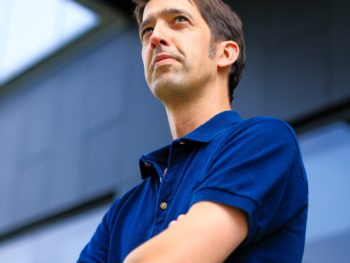“Guilt can be a good thing. It’s the soul’s call to action. The indication that something is wrong. The only way to rid your heart of it is to correct your mistakes and keep going until amends are made. I don’t know what you didn’t do or what you should have done, but the guilt… the guilt means your work is not yet finished.” Father Paul Lantom, “Daredevil,” Season 2×4 – “Penny and Dime”
The second season of Daredevil opens not with a guilt-stricken Matt Murdock wrestling with what he’s about to do wrong but reveling in the very thing he was hesitant to begin: a nighttime career in vigilantism. This opener episode, “Bang,” is rife with Christian symbolism. The first time we see Matt in his armored Daredevil costume is inside a church that’s dipped in blood red, with him advancing slowly like a shadowy force on a panicked criminal. And as the camera pans up at the end of the intro, it passes a huge neon cross—again, red—before resting on a panting but exhilarated hero.
Matt’s world is balanced. He’s the Devil of Hell’s Kitchen by night, and compassionate attorney by day, though even with his best friend’s help concealing his vigilantism, their co-worker is growing suspicious. This careful balance is sent teetering by the appearance of a new player in the New York City criminal scene: Frank Castle, aka the Punisher.
Frank is not your typical hero, because he is, in a sense, also a villain. He’s not drawn to the law for solace, like Matt is. Daredevil gets into brutal fights and defeats his enemies, but he also turns them over to the police for the ultimate justice.
Punisher punishes. He is judge, jury, and most especially, executioner. Initial reports of his activities are so sketchy, criminals and cops alike think there’s a Special Forces squad massacring villains. Turns out, it’s only Frank, and a whole lot of firepower. And he’s not impressed with Daredevil’s perceived light touch:
“Look around, Red. This city, it stinks. It’s a sewer. It stinks and it smells like **** and I can’t get the stink out of my nose. I think that this world, it needs men who are willing to make the hard call. I think you and me are the same! … Only I do the one thing you can’t. You hit’em and they get back up. I hit’em and they stay down!”
Interestingly, when Daredevil asks Frank why he didn’t kill him, Frank never answers. This leads into the theme of Season 2—change.
More specifically, the idea of a person’s redemption.
Father Lantom first touches on this at the funeral of a criminal Matt failed to protect, when he says:
And so we might say, “One life gone, one sinful life.” But one person is not just one person. In each of us, there is a world, webbing out, reaching others. Creating reactions. Sometimes equal, sometimes opposite. We rush to say, “One life gone,” but each of us is a world. And today, a world has been lost.
He talks about the criminal coming to church, listening to the preaching, hoping for redemption, but never accepting the gift. Lantom, like Matt, values life, and as Matt told Frank the other night, it isn’t up to anyone human to mete out death:
“You ever doubt yourself, Frank?”
“Not even for a second.”
“Really? Really? You never think for one second, “****, I just killed a human being”.”
“That’s being pretty generous.”
“A human being who did a lot of stupid ***, maybe even evil, but had one small piece of goodness in him. Maybe just a scrap, Frank, but something. And then you come along, and that one tiny flicker of light gets snuffed out forever.”
This is why Matt doesn’t kill. He believes in the potential redemption of every human, whether likely or not, which is at the very heart of the Gospel. Paul notes this in 1Timothy 2, when he exhorts Timothy to pray for all people and their salvation, because “it is pleasing in the sight of God our Savior, who desires all people to be saved and to come to the knowledge of the truth.” Matt desires this, no matter how hard he fights against his worldly inclination to condemn.
And he desires it most of all for Elektra Natchios.
Elektra was Matt’s lover in high school, who turns out to be the secret weapon in a centuries-old covert war between the evil Hand and the heroic but still deeply flawed Chaste. Matt’s mentor, Stick, is convinced Elektra can never be anything but a killer. For a while, so is Matt, but when it comes down to the Hand trying to corrupt her, Matt is the one who talks her off the ledge. His love for her is not fully unconditional, but in a way reflects God’s love for the brutal, cruel, sinful humanity which both needs and often rejects his saving grace.
In that final battle, Elektra takes a blow meant for Matt, and dies in his arms. She says she knows what it’s like to be good, and wonders if it always hurts, to which Matt replies, choking on tears, “Yeah. It does.”
Those last minutes of the season show us a different Matt. When he charges after Nobu, he doesn’t chastise Punisher for his sniper shots that kill Hand ninjas. Nor does he hesitate to fling Nobu from a rooftop. The show never clarifies whether Matt knew the supernaturally-reinforced Nobu would survive the fall, only to be beheaded by Stick, but in that moment, he doesn’t seem to care.
Which is why, I think, the final seconds of Season 2 are Matt—sounding and behaving more fearful than at any other time in the series—shakily revealing his secret identity to Karen.
Matt knows he can’t lie to the people he loves. Not anymore. Because he is terrified he’s been lying to himself.
Daredevil won. But in doing so, he’s afraid of how much he may have lost.
Next month, Steve will continue his analysis of the Christian elements in Marvel’s “Daredevil” and “The Defenders” with “Let the Devil Out: Part III.”

Steve Rzasa is the author of eleven novels and numerous short stories of science-fiction, fantasy, steampunk, and contemporary fiction. His work has won the ACFW Carol Award for Speculative fiction.
Steve received his bachelor’s degree in journalism from Boston University, and worked for eight years at newspapers in Maine and Wyoming. He’s been a librarian since 2008, and received his Library Support Staff Certification from the American Library Association in 2014—one of only 100 graduates nationwide and four in Wyoming. He is the technical services librarian in Buffalo, Wyoming, where he lives with his wife and two boys. Steve’s a fan of all things science-fiction and superhero, and is also a student of history.

